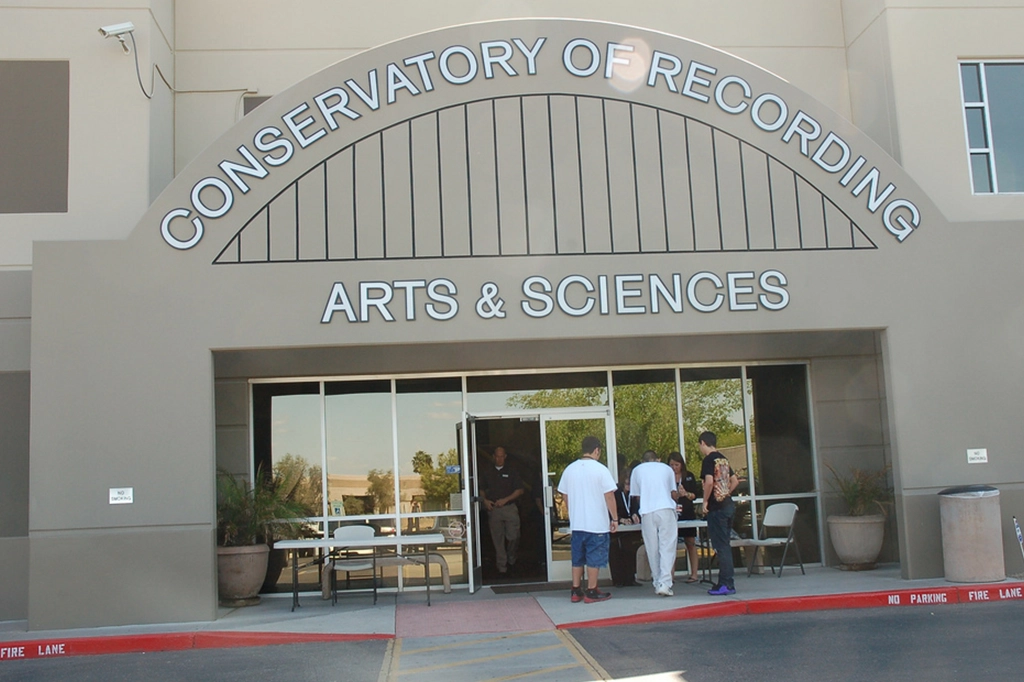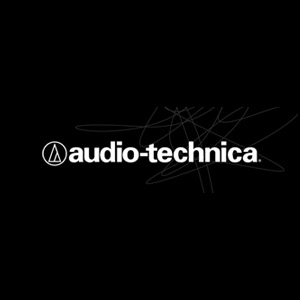An Afternoon With Manny Marroquin Part 2

From our post last week, recently we had Grammy winning mix engineer Manny Marroquin visit our school and be part of a great discussion on what it takes to make it in the audio industry. His body of work includes Christina Aguilera, John Mayer, Taylor Swift, Lana Del Ray, Dia Frampton, Rihanna, U2, Lupe Fiasco, Whitney Houston, 2 Pac and countless others. He has also recently developed and released a line of high-quality innovative plugins in his signature line from Waves.
When we left off, Manny was going over his impressions of the “loudness wars” and how it affects the way he listens to and mixes music.
Ike: Talking about dynamics, and the perception of dynamics, and how there’s a variety of techniques both in your end of things, and also in the musical arrangement… The instrumentation that’s happening and when and where it’s happening. The song form being such an important and integral part of how something is perceived on the timeline of the song. How do you approach song form as a mixer, and I wanted to touch on – for a lot of us, part of our curriculum deals with automation on a variety of platforms. When you’re dealing with song forms, that you are clearly very aware of, how do you approach automation in song form and dynamics? How do you use automation in your mixes?
Manny: When it comes to automation I’m old school, meaning that I don’t touch automation until the very, very end of the song. Because what I’m trying to do, I feel like sometimes with automation right off the bat, you are kind of cheating, in a way. At least that’s the way I see it. So I want to work hard for it. If something is not sitting right in the song, I don’t want to grab that fader and automate it. No, I want to work hard. I want to carve out frequencies. Why is it that it’s not sitting right? Obviously there is something fundamentally wrong with the tone, or the part, or something, so it makes me work harder. I’ll try different compressors. I’ll try four different EQs. I’ll try different combinations of compressor and EQ, or parallel compression. An effect, maybe a widener, maybe a doubler. Whatever it is, I need to figure out why I want to bring that fader down.
Again, the main reason why I make rides is for dynamics. Not for a level within that section. So what I try to do, I try to study the song first of all. Earlier in the process, why do I think that guitar should be down in the verse if I don’t know the song? Another thing I’ll always do is I always think of the next section. If I’m in the verse, I’m think of the chorus. If I’m in the chorus, I’m thinking second verse subconsciously. Again I want that emotional shift.
Sometimes there are great producers that give us that and you don’t have to touch a thing, which is great sometimes. Other times, the producers maybe a great producer but had an off day, or the artist wanted it this way, and I’m the guy, the third vote that outvotes the others. So I have to be aware of everything that’s going on in a song. So I choose to do automation at the very end. Now that I’ve established the song, the core essence of that song, whether it’s a pop song or not, now I feel like OK, now to build dynamics I’m going to maybe do a ride on the guitar in the verse. Maybe filter or EQ. Whatever it is that I’m trying to create. Then I start jumping into rides.
Automation is good, but I feel like a lot of people overuse it. Sometimes I get sessions from younger producers, and you see the little fader doing all these movements, and what I’ll do is I’ll grab the whole thing and hit delete. And it sounds better! So try this approach with less is more. Feel the song. If it needs automation, automate it, but it shouldn’t be one of the first things that you do. I’m a song guy, and a song is a song is a song. I’m studying the song to see how we can exploit every emotion out of that song. And you won’t know…now if you wrote that song and you did all those rides, maybe it’ll be a little different, but for me as a mixer getting the song, I don’t know what’s happening in the track. That’s why I choose to leave automation until I’m 80% done with a mix.
Sometimes I find myself not using almost any automation. It’s all EQing techniques, level techniques. The art of balancing a mix. I do this thing in the south of France called “Mix with the Masters”. What it is is a week long seminar and we go and hang out. I think they pick 15 participants, and we hang out for seven days. All we do is geek out for eight hours a day, right! One of the things I’ll do there is I’ll give the 15 guys 15 minutes, and we’ll time it. Balancing a mix in 15 minutes. That means if it’s a three minute song, you really only have four passes, right? You’d be surprised because a lot of the students these days are geeking out on equipment and plugins and hardware. But I say forget all of that. Just appreciate a well-balanced mix. And I’ll tell you by the end of the seminar, people are like “I can’t believe how much you can do by simple balancing”. I feel like they get more out of that 15 minute exercise than anything else because it just clicks. “Oh I’m overdoing it.”
We’re overdoing a lot of things. We’re over-processing. They’re like “what did you use on the vocal in this song?” Nothing. What do you mean? It sounds so good! Well I EQed around it. But not it was so over-processed that anything I would do would make it sound worse, so I went the other way. I left it alone because it’s the sh*tty sounding vocal sound, so I EQed around it to make it sound natural like it came to me. Like, whoa, the whole world just opens up. So sometimes it’s what you don’t do to something, and with automation I feel the same way. Don’t do automation at the beginning of a mix if you haven’t heard a song. Wait ‘til later. I hope that answered the question.
Ike: Definitely, definitely. Now speaking with all the different techniques that you are using in mixing, and listening to the song and not trying to overdo it. I think that a lot of people try to really hear the changes that they are making, instead of holistically looking at it. Just being so experienced as a mix engineer, are there any problems that you commonly encounter? I know that for students, including myself, I would consistently be mixing a wide variety of materials that’s just available at the school, like multitracks to practice on. I was just wondering for different problems that you commonly encounter, are there any tricks or solutions that you’ve worked out over the years? Any other suggestions besides what you have already been speaking about?
Manny: Well I’m not going to give my secrets away! Are you kidding? Naw, I don’t believe in secrets. We all have the same equipment, the same plugins, and everything. Trial and error. I walked into one of the classes here and they were showing you ratio, and attack and release on a compressor, and I was like wow. The attack and release on the compressor are probably more important than anything else. That will color more than any other button or knob or slider on the compressor. But play around with it. Oh this is what an attack does on the kick!
Oh I remember that Kanye West song kind of had that. Oh ok, boom, store it. Oh, the release on the vocal. Store it. This is what they mean by stereo bus compression when you have a high ratio and a slow attack and slow release. It sounds like Aerosmith 1979. Boom, you store that. So that’s how I do that. As what I said earlier, oh so that’s how you get that bass tone. So you start storing it on that drive and then the next thing you know, you get a song like….I remember the first time I heard “The Beautiful People” by Marilyn Manson. I thought it was one of the most amazing things that I had heard at the time. Then we just did a song called “Black Skinhead” by Kanye, and it reminded me of that.
The funny thing is when I mixed that song, I kept thinking of Marilyn Manson. Did it help me? Maybe, but it put me in that headspace. That’s worth it. That could have made the difference of me not performing right. So, trial and error. You just have to get in there and roll up the sleeves, get your hands dirty and just f*ck things up. Don’t be afraid of those overload lights! They should be white. People are so “oh my god you hit the red!” What are you talking about, yes! Red! More red! Don’t be afraid, these are tools. This is equipment. Equipment doesn’t run what we do, we run it. So don’t let the equipment dictate how you are going to perform. It’s a great tool but you have to take it by its…
Ike: Yeah, practice and building a vocabulary is nice and all, but you could know the whole dictionary and be a bad speaker, you know? Building that vocabulary and having that experience with different things that you worked on in the past that you can recall and have it put you in a mindset, I definitely agree with that perspective. Speaking of mixing and all the different material and recalling certain points of reference for the new material that is in front of you, how much would you say experimentation versus tried and true methods comes into play? Just being in demand, on those hour blocks of constant work.
Manny: Well, I get the foundation of the track and the song. That comes first. If I feel, like I always say, what’s the tabasco on the song? I find what the tabasco is. It could be snare drum. It could be snare drum delay. It could be a hundred different things. Now it’s up to you as a taste maker to find that tabasco. Once I find that, then I start experimenting with that. So automatically I don’t have a song and I’m like “ooo these live strings recorded at Abbey Road…I’m gonna put a flanger through them!” Why would I do that? That’s a waste of time, my time, their time. No, it’s beautiful, so unless a producer tells me to f*ck em up, I’m not going to do anything with it. They sound incredible.
So if I feel like the tabasco is in this section, those strings, and I want them to have a different texture, I want them to have a different color, because of dynamics – what’s coming after it, what came before? Then I may put a little phaser on it to give it that little ear candy. Subconsciously people will be like “I love that sound!” You know, they don’t even know what it is, but it’s that emotional thing that it changes enough to keep the push and pull, the interaction between what you want the listener to focus on.
Again, we’re mindf*cking. I want them to focus on this for a minute. Why? Because you don’t know what I have behind that section that is really going to slap you. So it’s like, sometimes it’s turning something down so they’re like “what’s happening?” and boom the van hits you. It’s dynamics. Now as a listener you’re engaged. Your mind’s not like oh let me check my twitter. Your mind is still engaged. When you have a good song – a great song, a great production and a great mix, then beautiful babies are made.
Ike: To go a little bit more logistically on receiving sessions and working with a variety of material to mix. How do you normally receive sessions? Now that we are in this digital world, is it like a cloud drive-based system, is it a physical delivery format, or a combination of those things?
Manny: OK, the art of delivering files. This is something you guys should learn, because a lot of you may be delivering files at one point. It’s like the wild west. I actually have two assistants, and some of them can take up to half a day just getting a session ready to by mixed. Let’s go back.
The way we get them, 80% is through YouSendIt or my FTP site, it’s an upload. The other 20% is a physical here’s the drive with the files. But what’s most important is how we get the files. So, for you guys, make sure you organize stuff. You name tracks. All that stuff that seems not necessary at the time because you are moving so fast, go back and spend the 15 minutes because someone like me will be like “who the f*ck sent this?!” John Doe. “John Doe? Tell him to get his act together.” Or wow, this is so organized, who sent this? John Doe? Now I have an interest because I want that guy on my team.
So it’s a good quality. Organize your tracks, color code them if you can. Be super, super anal organizing tracks. That’s only going to help you, because what we have to do is we have to be super anal. Right? Even my wife knows we are pretty anal guys. Get used to that, because you have to be super anal when you are preparing files.
Ike: Definitely. File management is crucial, I feel it is one of the most important things. Speaking on file management, keeping sessions organized, and different ways that you receive material, what are things that you like to see in a session? Like when you receive a session, what are things that stand out to you? Good and bad, things that just catch your eye right away?
Manny: Like I said, just that it’s organized. It makes our life so much simpler. Just cleaning up little things like pops, glitches that don’t need to be there. Just cleaning up session is really important, because then I don’t have to worry about that stuff. I can just focus on mixing. Honestly, I just want to throw faders up and be as creative as possible. If it takes away from the creative side, then it should have been dealt with before I got to it, I feel. If you’re an assistant engineer, make the engineer’s life just great. That’s your job. It doesn’t matter if it’s organizing tracks, getting him coffee, it doesn’t matter. Make him feel comfortable because he’s gonna keep you around. If he feels like you got his back, he’ll have your back. And it helps, all these things that we are talking about, file management, attitude, personality, humbleness. All of that stuff helps, it all helps.
Ike: Great. Now that we’ve been diving in specifically with what you do as a mix engineer, let’s zoom out and reflect a little bit. I wanted to ask, for you especially, in your position you would definitely know this, what are some things that you truly feel it takes to become a great mix engineer in this industry?
Manny: Besides good looks? It’s going to be the same thing I said: passion, great personality, wanting to be there, good work ethic. All of the things that everyone’s told you your whole life, it’s true. Your parents say hey do this and this, they were probably right. Let me go back to the passion part where I said earlier schools don’t teach that. How do you learn that? I don’t know how to teach it. Maybe if you could figure that out, google it or something. Mr Google I’m sure knows! So you gotta have all of those things. That’s what makes our lives simple.
Ike: For the individuals out here who are all really starting out and getting ready to embark on pursuing an entry level position, or to just get out there in the industry, what are some of the steps that you think individuals should take to find success? What steps did you take to get to where you are? I know we’ve been speaking about that for this past hour, but what do you feel are really the steps people should take to find success?
Manny: Take the initiative. Reach to guys that you look up to. Get out there. Do you guys know who mixed your favorite record? Do you guys read credits? It’s so hard now to read credits because there is no…somebody should come up with a genius website where you type in something and it gives you a credit right? You would think they would have it by now. Look at who your favorite engineers and mixers are. Social media, reach out to them. I get a ton of emails. I may not get back to them right away, but I try to get back. Or if I can’t answer, my assistants will. Just get out there.
You have to start engaging with people you look up to and start asking questions. Nowadays there is so much information that is out there. Do you guys watchPensado’s Place? Shows like that share a lot of information. They have a lot of information, and once you have all that you can make the plunge. You start reaching out if you want to be a runner, then to be an assistant engineer, look at all the studios. Reach out to the studios. Reach out to individuals. Reach out to independent studios, independent labels. Just see who needs help. See who needs maybe an intern, maybe some cool guy that you get their coffee or whatever. You never know who you are going to meet and how they are going to be able to help you help them, or vice versa.
I think this is a cool industry in that we are pretty open to that, but you have to have the right attitude. My advice is do your homework. You guys are dedicating the time to come here, and the money to come to a place like this, it looks like you guys are pretty serious about this so…I’m the kind of guy that if I’m going into something, I’m going to be very detail oriented and try to educate myself before I go into battle.
So this is it, this is school time where you gotta do your homework. I’m sure the staff here has information on all the studios, get that information and go online and search for guys, other mixers, engineers. Studios only in LA, or New York. Man, there is music everywhere! There is always a studio somewhere. I’m not going to say it’s an easy gig, I’m not going to say you are going to get out of here and get a job, but you have to work at it and you have to start thinking about it now. The time is now!
Ike: Before we go ahead an open this up to the audience…
Manny: Yeah I want to see what you guys are gonna ask me!
Ike: The last question I wanted to ask before we get this next section going. What are some of the mistakes that you learned from the most? I mean, having such a long and successful career, I wanted to ask that before we conclude this session here.
Manny: Man, there’s always mistakes. The time I accidentally erased a lead vocal and the girl got really made at me. We’re all gonna screw up at some point. There’s always mistakes. Sometimes you feel like you follow your gut and it’s not right. But I’m OK with mistakes. I honestly feel you have to learn from them. The mistakes are going to make you who you are. It can’t all be perfect, you gotta have the good and the bad. You can’t have the Lakers win championships without losing. You gotta have those moments of heartaches to enjoy the championships.
Ike: Well Manny, again, thank you so much.
Manny: Of course! This guy, seriously. I see a future!
Manny: Besides good looks? It’s going to be the same thing I said: passion, great personality, wanting to be there, good work ethic. All of the things that everyone’s told you your whole life, it’s true. Your parents say hey do this and this, they were probably right. Let me go back to the passion part where I said earlier schools don’t teach that. How do you learn that? I don’t know how to teach it. Maybe if you could figure that out, google it or something. Mr Google I’m sure knows! So you gotta have all of those things. That’s what makes our lives simple.
Ike: For the individuals out here who are all really starting out and getting ready to embark on pursuing an entry level position, or to just get out there in the industry, what are some of the steps that you think individuals should take to find success? What steps did you take to get to where you are? I know we’ve been speaking about that for this past hour, but what do you feel are really the steps people should take to find success?
Manny: Take the initiative. Reach to guys that you look up to. Get out there. Do you guys know who mixed your favorite record? Do you guys read credits? It’s so hard now to read credits because there is no…somebody should come up with a genius website where you type in something and it gives you a credit right? You would think they would have it by now. Look at who your favorite engineers and mixers are. Social media, reach out to them. I get a ton of emails. I may not get back to them right away, but I try to get back. Or if I can’t answer, my assistants will. Just get out there.
You have to start engaging with people you look up to and start asking questions. Nowadays there is so much information that is out there. Do you guys watchPensado’s Place? Shows like that share a lot of information. They have a lot of information, and once you have all that you can make the plunge. You start reaching out if you want to be a runner, then to be an assistant engineer, look at all the studios. Reach out to the studios. Reach out to individuals. Reach out to independent studios, independent labels. Just see who needs help. See who needs maybe an intern, maybe some cool guy that you get their coffee or whatever. You never know who you are going to meet and how they are going to be able to help you help them, or vice versa.
I think this is a cool industry in that we are pretty open to that, but you have to have the right attitude. My advice is do your homework. You guys are dedicating the time to come here, and the money to come to a place like this, it looks like you guys are pretty serious about this so…I’m the kind of guy that if I’m going into something, I’m going to be very detail oriented and try to educate myself before I go into battle.
So this is it, this is school time where you gotta do your homework. I’m sure the staff here has information on all the studios, get that information and go online and search for guys, other mixers, engineers. Studios only in LA, or New York. Man, there is music everywhere! There is always a studio somewhere. I’m not going to say it’s an easy gig, I’m not going to say you are going to get out of here and get a job, but you have to work at it and you have to start thinking about it now. The time is now!
Ike: Before we go ahead an open this up to the audience…
Manny: Yeah I want to see what you guys are gonna ask me!
Ike: The last question I wanted to ask before we get this next section going. What are some of the mistakes that you learned from the most? I mean, having such a long and successful career, I wanted to ask that before we conclude this session here.
Manny: Man, there’s always mistakes. The time I accidentally erased a lead vocal and the girl got really made at me. We’re all gonna screw up at some point. There’s always mistakes. Sometimes you feel like you follow your gut and it’s not right. But I’m OK with mistakes. I honestly feel you have to learn from them. The mistakes are going to make you who you are. It can’t all be perfect, you gotta have the good and the bad. You can’t have the Lakers win championships without losing. You gotta have those moments of heartaches to enjoy the championships.
Ike: Well Manny, again, thank you so much.
Manny: Of course! This guy, seriously. I see a future!
Ike: So now we are going to go ahead and open this up to everybody in the audience.
Ike: So now we are going to go ahead and open this up to everybody in the audience.
Crowd Question: I’m in cycle two so I have a long time before I actually get out of here. What would be the most important steps to take to start building my resume and start looking good, so that I can go out there and actually perform well?
Manny: Let me ask you. Engineer? Producer? Mixer?
CQ: I want to be a producer eventually.
Manny: What kind? Beat oriented? Band?
CQ: More towards the hip hop side, more EDM.
Manny: OK. The first thing you can do is learn the programs. With EDM you gotta know Logic, Reason, Ableton. Learn that first. Then again, listen to all your favorite artists. Google how they did this sound, what filters they use, how they effect their filters if it’s analog or if it’s all in the box.
So right now, cycle two, out of ten, I think you can do that now, tonight. You can go and whoever you like you can look and find out how they create that sound. Now if you had said “band” then I would have had said something completely different. But now you can do your due diligence on who you like. And then what I would do if I were in your shoes, I would start experimenting with those sounds and start trying to mimic those sounds. I throw Skrillex on that. Try to mimic what he’s doing. In the process of you doing that…they ask how do you get your own sound? Well you copy other people and eventually you create your own sound. So that’s simple advice. Learn your tools, that’s really important in the EDM world, like Ableton. I hope that answers that.
Crowd Question: My name is Mike, I’m in 9th cycle here. Do you feel like the way that people listen to music and appreciate music has changed nowadays? How do you think that affects the way you do what you do, in a negative or positive way?
Manny: Wow. It’s definitely changed. Like I said earlier, you guys have Spotify? Does anyone here buy CDs? Who buys music on iTunes? Who listens to Spotify? Wow, some people raised their hands three times. I think, again, music is so exciting right now. Spotify for me…I shouldn’t be saying this because it ultimately hurts my income, but…Man, if I can just type something up and listen to it. I was listening to this guy,Jake Bugg the other day. He’s from England. I would have never listened to his stuff if I was going to buy the album. I would have never bought it, unless somebody said “you gotta buy it!” But no one did.
So I was curious and I thought he was incredible. And now I’m telling you guys about it. There are so many artists out there that you can at least get a preview. You can taste before you buy, you know? So I think we listen differently.
Headphones. Now I gotta mix for headphones, in a way. I don’t do that, but I have to be aware of it. So we are listening to music completely differently. I remember buying CDs 15 years ago and sitting in the living room, listening to the whole CD and reading the credits. I don’t do that anymore. But, it’s an exciting time because it is a DIY world. All you guys can create from your laptop and your headphones. So it’s an exciting time for all of us and and exciting time for music.
So how that’s affected me? Now I’m aware that if I EQ a kick, and it’s an Enrique song that’s super pop, I know that I can’t mix it as if I was mixing some old school hip hop. Even though it’s the same drums, because hip hop drums are everywhere now. I would EQ it slightly different. But I wouldn’t dictate the way I mixed because of headphones or anything. I’m just aware of it. Good question.
Crowd Question: My name is Antoine, third cycle. In the introduction, he said you worked with Tupac. I wanted to ask what songs or what albums? And is there anything that you learned from him that you still use to this day?
Manny: I mixed a couple songs. “Do For Love”, did you ever hear that one? There you go. Listen, I was really blessed to have worked with Tupac and Big. I gotta say, if anything I remember from him…he was so fast in the studio. Say he would come in at 4 o’clock, by 10 o’clock he would have written four songs, like that. Then he would go out to the club, come back at 2, and record all 4 songs. That’s why there is so much material out there. And then he would do that every day.
So talk about work ethic! One thing about being around all these artists, one thing they all have in common is their work ethic is incredible. There’s artists that just work, I don’t know when they sleep. I thought I didn’t sleep. And he was one of them. All of those guys are. It seems like the bigger they get, the sweeter and the nicer they get. But he was a really cool guy, and I still owe him $20 that I never paid him back.
CQ: Is there anything that you took from him that you still use to this day?
Manny: Not necessarily. It’s just one of those artists that you meet and you try to pick things up. If there was anything that I picked up, it was his work ethic. It just reminds you. I’m working right now with Mariah Carey. And you think she is the ultimate diva, but we are in the studio until 5, 6 in the morning. And she has two kids. But she’s passionate. You wouldn’t think that a diva at that stage in her career would be as driven as that, because she’s got the money, she’s got the fame. She’s got everything. But she’s there, she’s working. It may be annoying at times, but she is there and she is putting in the work.
CQ: Good afternoon sir, my name is Sarkis.
Manny: If you ever call me “sir” again, I’m telling you man, there is going to be some problems! I’m kidding.
CQ: My apologies. I’m in 5th cycle. You’ve been asked a lot of questions today, so I’m going to make you are really simple question to answer for us. I think everybody would like to ask you this question. What’s it really like to live the dream we are all here working for today?
Manny: Oh man. Like I said earlier, they pay me to do what we do. I wouldn’t tell my manager this, or my clients, but I would do it for nothing. Seriously! I would have my wife work all day long… Get two jobs, so I can mix all day, and I would do it for nothing. This is the dream. It’s challenging, it’s a crazy schedule and hours. You give up a lot, I’m not going to lie to you, you give up a lot. There’s a lot of sacrifice, there’s a lot of times I want to punch a wall. There’s a lot of times that I want to quit. But hey, listen, I don’t cry, but there’s times that I would want to go into the bathroom and cry, because an artist said “no, that’s not how you do it. That’s not how I want it.” Or a producer drunk or high or whatever, and they are disrespectful and you can’t say anything back. It’s tough, it’s hard but I wouldn’t change it for anything.
If this is the dream, for all you guys, I’m telling you what you must possess. And we’ve been talking about this for a couple of hours, and I hope you guys know that, and listen and take it to heart and say “I gotta get my act together, or work harder.” It’s like the Kobe Bryants or the Michael Jordan…I’m not comparing our career to that, but it is that dedication and the desire to win that is going to get you there. So you’re going to have Kobe Bryant miss some threes in Utah when they are playing game six of the….You’re gonna shoot some air balls. But that’s what makes him what he is now.
So some good advice – the rejection I was talking about earlier, you have to see that as a positive thing because you will get rejected many times. So get used to that now, so the first moment that you get rejected, that’s the moment where you rise up to the occasion. I remember guys would try to convince me to be a tech, to fix gear. I was like, no, I want to be a mixer. No one thought I could be in the same room with Madonna or Whitney or all these artists. “Wait! He’s a foreigner, what are you talking about! Why don’t you fix gear behind the scenes?” But I’m like, tunnel-vision. Really? Wait until I prove you wrong. But you gotta know you gotta put in the hard work that comes with it. So I proved them wrong. That’s the best feeling in the world. But it’s not going to happen to all of you.
So whoever works harder and is willing to give up somethings more than others, and whoever is willing to suck it up when there is rejection, whoever’s willing to work that extra shift when you had a date with this hot girl you were trying to get with forever…She finally says yes and you have to cancel at the last minute because you have a session and you don’t think about it twice because that is where you want to be. We are very passionate people. You have to have that.
CQ: Hi, my name is Rob and I’m in 8th cycle. I’m just wondering, you’ve definitely gone towards more of the mixing side of the audio industry, but have you been interested in other aspects, like tracking or live sound or anything like that?
Manny: You know I started being a tracking engineer. I started doing a lot of rock when I was assisting. I think that, man, that is such an art form. I probably would enjoy that maybe as much, but mixing is kind of what I fell into and what I wanted to do from an early age. But tracking, I gotta say I do miss tracking, especially bands. You can be really creative with miking techniques, and whether there is tape…You know tracking engineers are to me an extension of the producer. Just like a mixer.
But I do miss being in a room with a band and the energy that you get. When they hear themselves when the sound comes out, they go into the room and they hear the playback and they are like “oh sh*t! Let’s do one more take!” And that take is the one that makes it to the final. I kind of do miss that, but luckily I’m a busy mixer. I wanted to be a mixer in the beginning but I do miss tracking. It’s an art form.
You guys should remember that, if anyone wants to be a tracking engineer. It’s actually a lost art form. You guys gotta make sure that if you are going to go that route to learn all the old school tricks. Because that’s what this generation doesn’t have. We were talking earlier that tape, for example, you guys are learning how to maneuver tape. Not that you have to learn how to align a tape machine, maybe they are teaching you that, and that’s cool to know, but most importantly is listen to what it sounds like.
I was saying earlier that I’m always trying to chase that sound, and I’m so blessed that I come from the analog world and I was able to make that transition to the digital world. If I didn’t have that, I wouldn’t be chasing these sounds that I have in my head. I wouldn’t have a reference point. It’s great that you guys are doing this. So next time you hear something off of tape, a good experiment would be to dump it into Tools and tape, and just do a simple A/B. Listen to the sounds, but listen to the emotion, which is really strange. Tape will give you a different emotion. Again, emotion based on balances and saturation. It’s incredible that the emotion changes based on a piece of electronics, right? So listen to the analog tape next time and try to pick something up. Try to store that sound in your head.
CQ: You were talking earlier about sacrifices that have to be made to be in this industry. Now, when you give so much of yourself into a dream that you love so much as this, how do you balance your studio life with your personal life, with kids or a wife?
Manny: Let’s ask my wife that question! It’s tough, it’s really tough. Theres good moments, and not so great… I think we figured something out. First of all you live day by day. That’s one. The second is…I figured out that I’m working from vacation to vacation. Meaning, hopefully every 4 to 6, or 8 weeks, we say “Let’s go to Napa!” We love wine. And then we mentally, or on a physical calendar, we X it. And then three weeks from now we know we are going there.
I feel that helps me because then I can work hard and play hard. Because when we play hard, we play hard. You know? We go to the south of France. We go to different cities. So vacations for me are important. I mean, I think we took like three vacations, four vacations in one year, you know? Where I ask some of my peers, and they are like dude, I haven’t taken a vacation in like five years. What a way to kill your career!
So that works for me. You just try to balance it out. I can’t say I figured it out exactly, but just quality time. When you are with the wife and kids, you make it about them. You try not to take phone calls. Like with Babyface, quality time. But again, what works for me is getaways. Also, I live two minutes from the studio. That helps. I don’t own a home studio. But I live close by in case of an emergency. Or mentally just knowing that you are close, right? So that’s one of the tough things that you are going to have to balance out. And I don’t think there is any formula to that. There’s going to be great times and then sometimes it’s not gonna be that great. And for me vacations help. The not so great times, it helps to think “OK, one month we’ll be in Barcelona.” That’s what works for me.
CQ: My name is Devlein, I’m in second cycle. My question for you is a two part question. You had your era of the delay, you had the era of the reverb, you had the era of the Auto Tune… What is your “it” tool and what would you consider to be the future of music’s “it” tool?
Manny: Man, if I knew the future I’d be making a lot of those plugins right now. You know, Auto Tune, you brought up a good thing here. The way I see Auto Tune… I think Jay Z said “Death of Auto Tune” and everybody kept using it. So, remember when the wah-wah pedal came out? Well, not remember, I don’t even think I was alive then, but…When the wah-wah pedal came out, everybody was using it and it was on all kinds of records and it became that. A tool, right?
A lot of people have this “oh, f*ck Auto Tune” attitude. I’m not one of those guys. It’s a tool. If you don’t like it, don’t use it. If you don’t like a wah-wah pedal, don’t use it. You have that option. Just because Jimi Hendrix and all these other great guitar players are using it at the time doesn’t mean you have to use it. So it’s just a tool. I remember when everyone was doing phasers, tape flangers, and all this. I don’t think it’s a phase, it’s just another tool. I don’t know what the future is. I have no idea, but I think the key here in your question is just embracing those tools. Just evolving with those tools. Try Auto Tune on something else that nobody else thought of. Maybe on a guitar, of course they use it on the guitar, but try using it in ways that you wouldn’t normally use it. Those are the innovative ideas that they will make a plugin for later. I hope that answered that a little bit, if it didn’t I’m sorry, don’t write me some hate mail like “this m-f doesn’t answer questions the right way!” Ha!
CQ: Hey Manny, my name is Nick. I’m in first cycle here. I wanted to reference your analogy earlier, that less is more. I wanted this question to reflect your past through today, regarding the music you’ve produced in your life. How important is the dollar aspect with doing what you love?
Manny: Oh wow. Basically less is more. Let me start with that. For me always less is more. We are in the era of so much information, right? I mean, you guys have like 100 plugins. We all have 100 plugins. Well, I have six, but… There’s a lot of processing. We go back to more more, how do we get this? Let’s EQ it. Let’s over EQ. Over compress. It’s a lot of that. For me you lose perspective on what you are trying to do with the tools.
Just like we were saying Auto Tune and all these are great tools, they can only get in the way of your creativity. So for me less is more, because it’s all about the song at the end of the day. Honestly we are all here for the emotion of whatever that is. So, if there is a lot of candy around, then I’m very careful on how that is used. So I take the approach of less is more. Mixing, if I have a chorus that is super busy, then I want my verse to be super empty. Although the producer has given me as much information in the verse, I’ll go into the mindf*cking thing. I’m not going to mute his tracks, or maybe I will sometimes, but I’ll filter it. I’ll EQ it. I’ll bring it down. I’ll put an effect on it to the side. Enough so that it doesn’t feel like there is more, more, more.
I said this before where, sometimes you listen to songs and they are really fatiguing, like you don’t want to listen to it again, even though it’s a great song. And it goes back to that. By having less, even though you hit that peak in your chorus, you get a sense of “OK, I can breathe” in sections. It’s not like someone just choking you for three minutes. You wouldn’t want that. Or hey, I dunno… But yeah, so less is more.
The second half of your question, putting a dollar value right? Luckily I’m never driven by money. That’s really important to know. To make money, don’t get me wrong, it’s great. But it’s never been motivating. I didn’t think I was going to make any money mixing. I thought I was going to get minimum wage for eight hours in and out. I didn’t know I was going to make money, you know? So, try not to make decisions based on money because again you gotta be passionate. I don’t think money is a passion. You may have to live in the crappy one bedroom apartment in the worst part of town, but, again… I’ll take that to be doing something that I really love doing. I’m just blessed and happy enough that I’m able to provide for my family. But I think that if I honestly lived in a one bedroom apartment living in North Hollywood, doing what I’m doing, sure it would be harder, but I just can’t describe the feeling that when you do something that you truly love and that’s all you think about. At the end of the day, money will come. Because when you do something you love, money usually just comes.
CQ: Hey Manny, my name is Hanan and I’m in 9th cycle. I know that from some of the albums that I’ve heard, that I love I like the sound and I’ve followed a lot of mixers. What are some of the steps you took early on to develop your sound, and how do you stay true to that sound with everything changing in music?
Manny: So, consciously, I think a lot of my peers – I can’t speak for them – but I think people want “a” sound or they want “their” sound. I’ve kind of taken the opposite approach. I don’t want a sound, you know what I’m saying? I don’t want people to recognize “Oh that’s a Manny mix!” Honestly, it’s flattering, but I don’t really care, you know? Because if I have a sound that means that I couldn’t mix Kanye, and then a Bruno. Because Bruno would hear it and say that’s not the sound I want. But then, once I do Bruno and Kanye, then some people will say “we want that sound” and other people will say “oh we want that Bruno sound”. Guess what, it will be me! So I don’t want a sound. So I consciously don’t go for “I’m going to do it like this, my way”. Listen, I’m the mixer. I just want to get that song, I want to take it to its full potential. And having “a” sound, that would limit me. That’s a good approach, where you don’t want a sound. At least, I don’t want a sound. I want to be able to do all the different genres. I know that’s a boring answer isn’t it? I’ve got no sound!
CQ: My name is Jim, 7th cycle. It’s been an honor, a great experience. Probably my favorite two hours at CRAS so far. Devlein, I know you asked earlier about the future plugins. Mr. Marroquin has his own series of plugins from Waves right now. They are actually on sale too, so this is a great time to get them. But I wanted to ask, how loud to you listen when you are mixing, and do you have any advice on buying studio monitors?
Manny: It depends on the track. If it’s a club joint and I have to get the low end right I listen loud, in the beginning. I listen to the feel of it. Two of the hardest things to mix are vocals and low end information. You have 808s, kicks, bass, live bass, bass synths. The box is this size, so big, and to fit it into that, it takes a lot of EQing and compression techniques. I think that what happens with…let me go back to the low end thing. When you have an 808… are you guys familiar with this album “808s and Heartbreak” by Kanye? Some of you may. That’s one of the toughest albums because it was all 808s. And trying to manipulate that, you can’t hear it at lower volumes. So I have to listen to it at very loud volumes. Now, once I establish that, I really monitor soft. So I go from like super, super loud, to really soft.
For me, monitoring soft gets me into the song, because now I can appreciate all the subtleties in the song. And in my mind I’m calculating what am I going to do, how am I going to fix…what am I going to leave alone? What am I going to exploit? So all those things come to mind at the time, listening soft. Listening at that level with “808s and Heartbreak”, I couldn’t do it because I couldn’t tell all the subtleties in the song. So it’s either really loud or really soft. But I still have my hearing! I think.
CQ: Great segue, by the way. I wanted to ask about “808s and Heartbreak”. I noticed you worked on the Yeezus album, and you worked on “808s”. When you work on these albums, do you go off the single, or do you go off three songs you like, or maybe Kanye likes?
Manny: Man, Kanye is crazy. I have a love/hate relationship with him.
CQ: Yeah, both albums sound really, really different. And another question I had, is how do you walk on eggshells with celebrities because you mentioned sometimes they snap…sometimes they don’t…
Manny: You know, I guess I was maybe exaggerating when they snap. Sometimes they have their issues, that have nothing to do with what you are mixing. Hey, listen, you know artists…I feel like I do really well with artists. In a weird way, I’ll give you this maybe stupid example… If an artist comes in and goes “Yeah, I want it to sound like the south of France in a 300E convertible in June with a silk scarf, and it’s flowing and I’m doing 55 miles per hour. That’s exactly what I want it to sound like!” And you’re like… but for some weird reason I know what he means. Not that I own a silk scarf, because I don’t. So I don’t know, I just kind of get what they are talking about and I’m able… I haven’t had a lot of disagreements with artists, because I kind of just get them. I don’t know why or how.
Even if you were to ask me how, I wouldn’t be able to answer that. But having said that, artists are artists. You have to kind of ride…like they are up here, you gotta pull them down, without them knowing it. If they are down here, you have to pick them up. If they are here you gotta go there with them. But you gotta keep them here. When they get out of this little bubble then your job is to somehow with a joke, something serious, a conversation, whatever it is. Maybe you play the music, you reel them back in. So manipulating artists is an art form. That’s one thing that we didn’t talk about, but that is for next time! So for you cycle 10 guys, cycle 8 guys, you’ll probably be gone by the time we discuss the art of mindf*cking artists.
Jim Naron: There is something that I want you guys to know. Manny and his wife are on vacation right now, and as an act of kindness and humility, he has decided to come and visit us. Terrie, thank you so much for being the backbone of Manny. Manny, it is just such an honor to meet you and spend two hours with you. This is great.
Manny: Thank you guys! And listen, I’m in all social media. Twitter and all of those. If you guys have any questions, if I can’t answer it right away one of us will on my team.
Jim: On Manny’s facebook, there are some photos of his recent launch of his Waves plugin line. I would recommend that everyone go to check that out. Also his website displays his discography if you haven’t checked that out yet. It also shows his plugins and everything.
Manny: Check it out, let me know what you guys think!
























